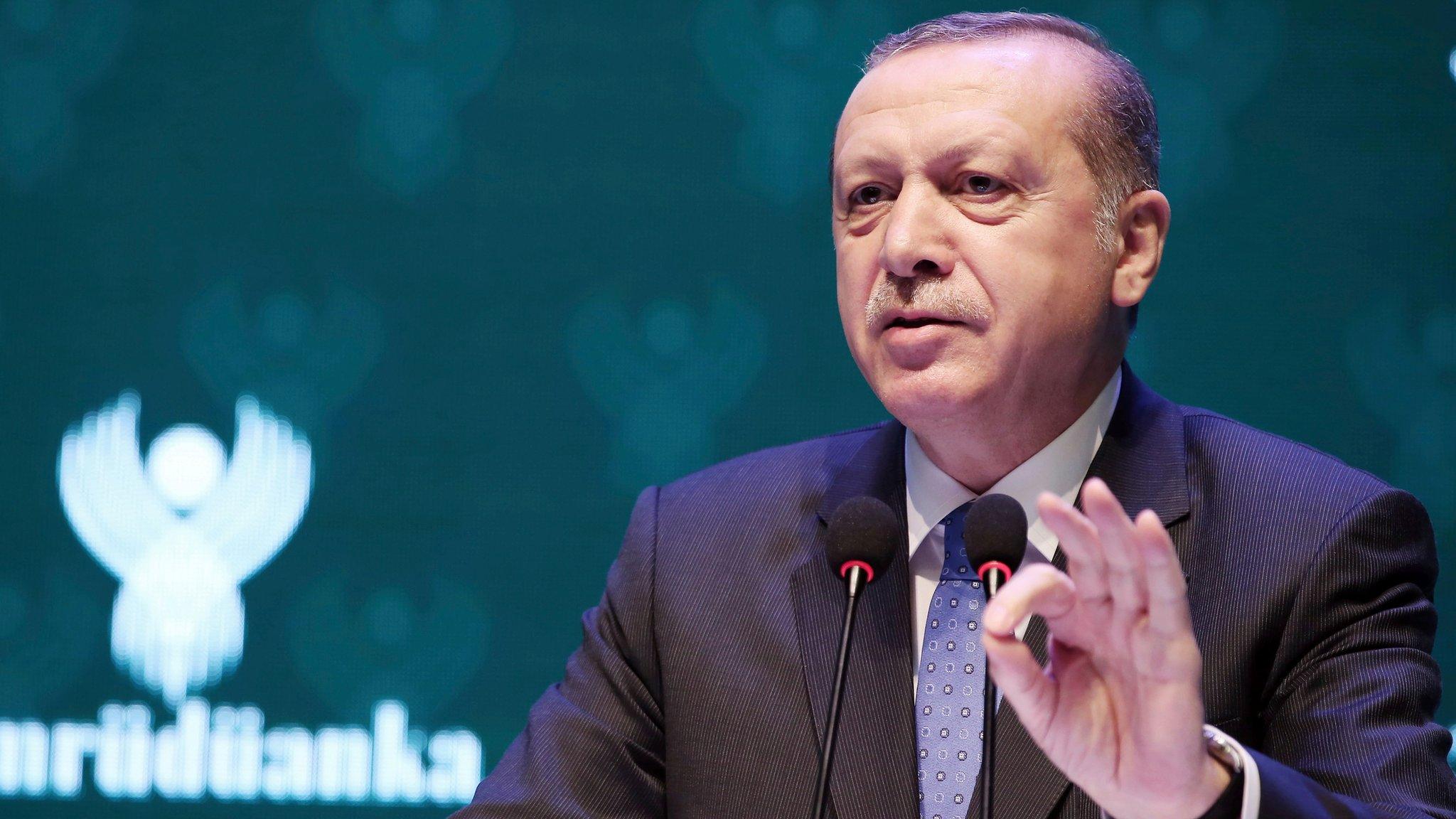Erdogan says Germany cannot scare Turkey with threats
- Published
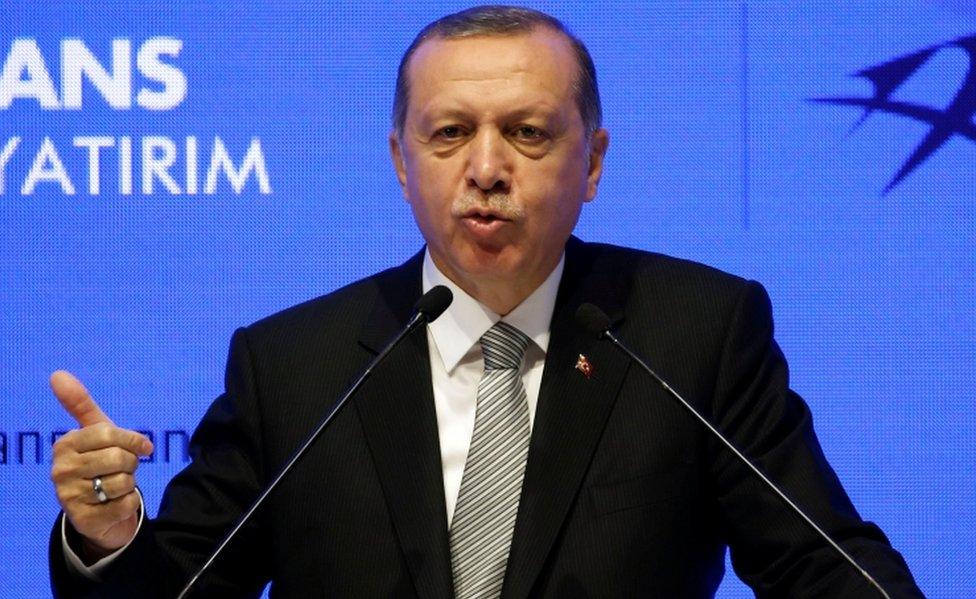
Turkish President Recep Tayyip Erdogan said Germany should not "smear" Turkey
Turkish President Recep Tayyip Erdogan has told Germany it cannot scare Ankara with threats, in a growing row over the arrest of six human rights activists.
Germany had said it is reviewing all arms deals with Turkey, saying it must consider human rights when making export decisions.
"You (Germany) do not have the power to smear Turkey," Mr Erdogan said.
The German government had warned its citizens they risked "arbitrary" arrest in Turkey.
Finance Minister Wolfgang Schäuble accused the country of acting like Communist East Germany - arresting people and denying them consular help.
"People who are travelling to Turkey for private or business reasons are urged to exercise increased caution," the German foreign ministry said on Thursday.
But Mr Erdogan described the warning as "baseless and malicious".
Turkey's coup attempt - in numbers
Frosty relations between the two Nato partners have chilled further in recent days over the Turkish authorities' recent wave of arrests.
A German citizen, Peter Steudtner, and Amnesty International's Turkey director, Idil Eser, were among those detained.
Responding to German criticism over the rights situation in Turkey, Mr Erdogan claimed that Turkish courts were "more independent" than German ones.
"Germany should sort itself out," he added.
Turkey has repeatedly accused Germany of harbouring Kurdish militants, as well as suspects wanted over last year's failed coup.
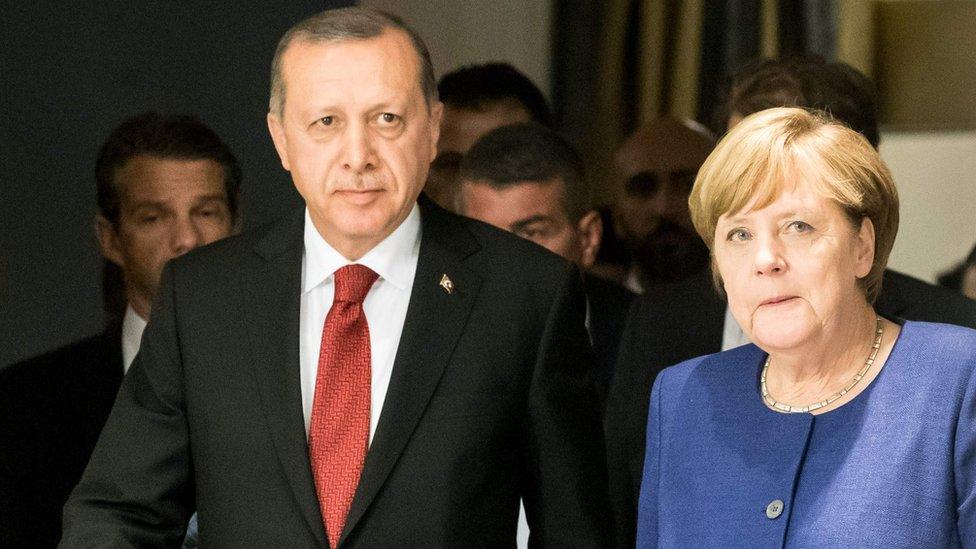
President Erdogan and Chancellor Angela Merkel met at the G20 in Hamburg this month
Turkey's Deputy Prime Minister Mehmet Simsek meanwhile denied reports that German firms were being investigated over terrorism.
"I want to assure the German business community that German companies aren't subject to any investigations for terrorist financing by Turkish authorities," Mr Simsek said.
He said his country was committed to improving the investment climate, strengthening the rule of law, enhancing standards of democracy, and converging with European Union standards.
Germany's Die Zeit website had reported, external that Turkey handed Angela Merkel's government a list of 68 German companies and individuals accused of supporting the "terrorist" movement of US-based Muslim cleric Fethullah Gulen, who Turkey's president blames for a failed coup against him.
Industrial giants BASF and Daimler were reportedly on the list, as well as various small firms.
Die Zeit said German officials had dismissed the list as "absurd".
Turkey's President Erdogan has been condemned internationally for a huge purge of state institutions after rogue military officers tried to topple him a year ago.
More than 50,000 people have been arrested since 15 July, 2016, including more than 170 journalists and many opposition politicians, academics and activists.
Turkey's detention of Deniz Yücel, a German-Turkish journalist with the Berlin daily Die Welt, is another sore point in the two countries' relations. He was arrested in February on terror charges, which he has denied.
- Published7 July 2017
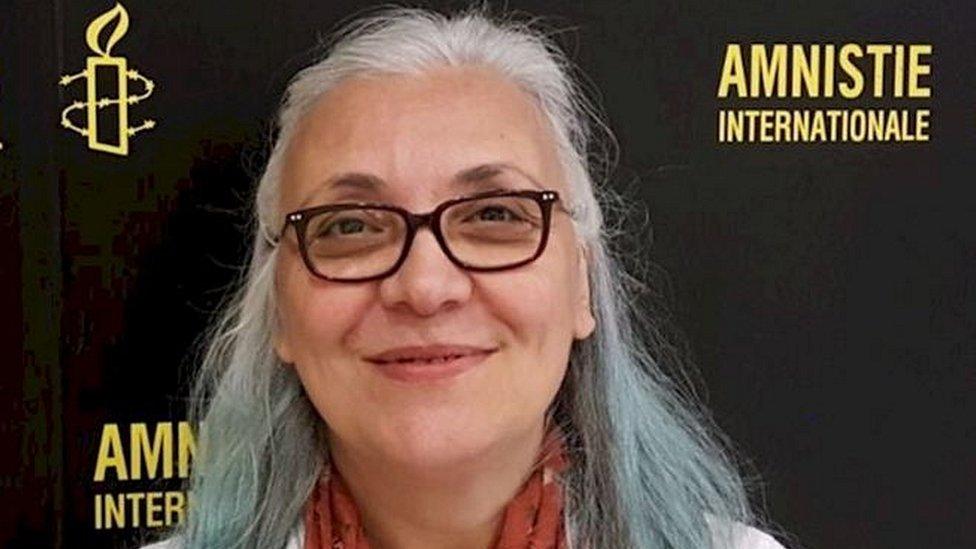
- Published29 June 2017
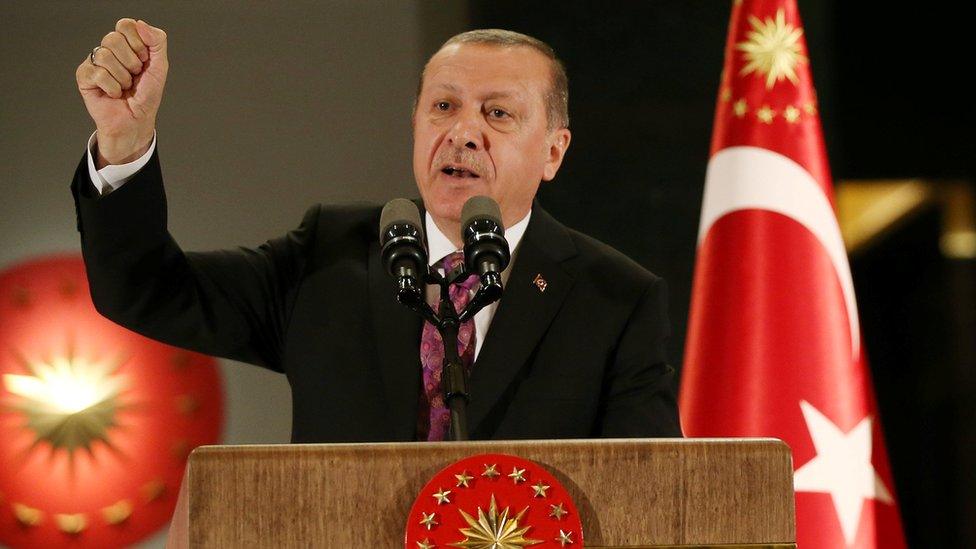
- Published21 June 2017
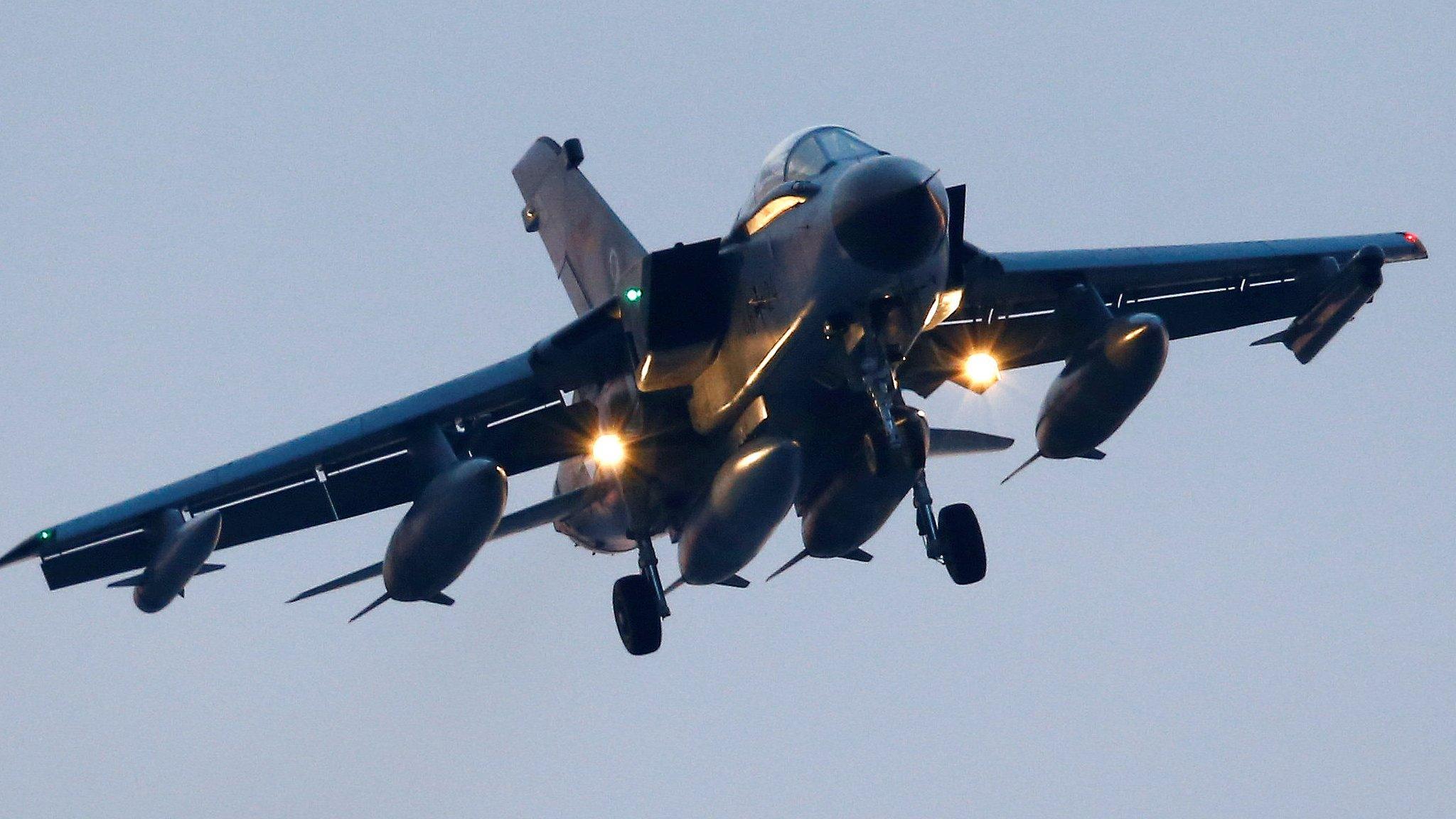
- Published3 March 2017
